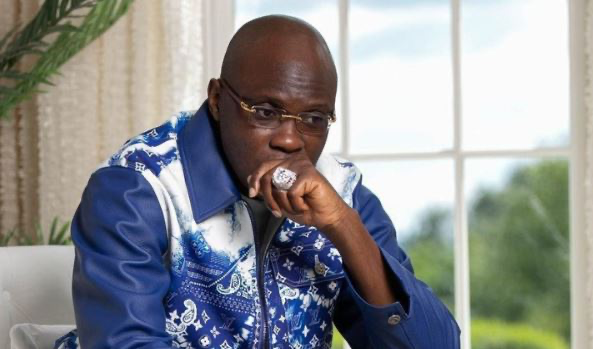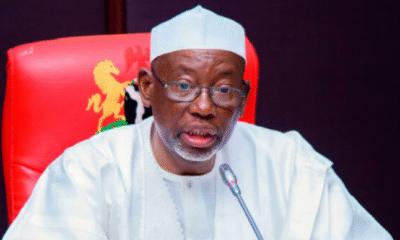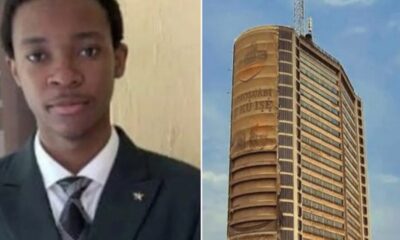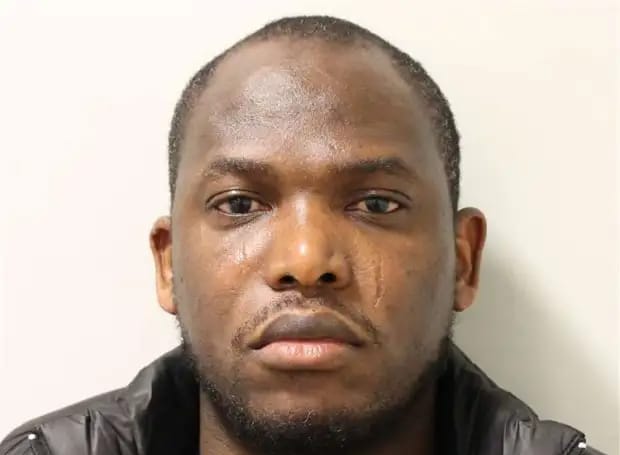National News
Why Nigerian-born pastor, Tobi Adegboyega’s was deported — UK Judges

Fresh details have surfaced regarding the reasons behind the United Kingdom Immigration Upper Tribunal’s approval of the deportation of Pastor Tobi Adegboyega, founder of Salvation Proclaimers Anointed Church (SPAC Nation).
The 44-year-old pastor, who arrived in the UK on a visitor’s visa in 2005 but did not leave when it expired, had sought to remain in the European country on human rights grounds. He had married a British citizen.
After the Home Office denied his request, he appealed to the first-tier tribunal, which equally turned him down.
Subsequently, he appealed to the upper tribunal on August 15, 2022.
The controversial pastor, through his lawyer, Dele Olawanle, told the tribunal that his church had initiated various intervention programmes to rescue troubled youths on the streets of the UK from gangs and crime.
Adegboyega also argued that his deportation would harm his projects and community influence, which he claimed had been supported and recognised by prominent UK figures, including former Prime Minister Boris Johnson and senior figures within the Metropolitan Police.
He also claimed that he had played an instrumental role in setting up a food bank which had provided 136,000 meals for children, adding that he “intervened in the lives of many hundreds of young people, predominantly from the black communities in London, to lead them away from trouble”.
Adegboyega added that he established a network of safe houses throughout London where he accommodated young people trying to avoid gang conflicts.
But the upper tribunal judges, Bruce and Rastogi, insisted that Adegboyega must return to Nigeria despite his arguments.
In the judgement document obtained by Saturday PUNCH, the court rejected Adegboyega’s appeals, citing his unlawful stay in the UK and exaggeration of his community work claims.
The tribunal ruled that Adegboyega had “grossly inflated” his contributions, describing his claims as “hyperbolic” and unsupported by substantive evidence.
The court noted that the pastor failed to provide corroborative evidence that the UK police endorsed and supported his works.
The court insisted that his work could continue without his presence in the UK and dismissed his marriage to a British citizen as insufficient to counterbalance his immigration violations.
“We do, however, note the absence of corroborative evidence in respect of the most prominent agencies that the appellant (Adegboyega) claims as his supporters.
“There was nothing before us from the Metropolitan Police, Downing Street, the Mayor of London or the Home Office, all institutions which the appellant claims to have enthusiastically endorsed his work,” the court affirmed.
“For instance, there was nothing at all to support his assertions that his presence in London is needed to ‘calm the nerves of people from ethnic minorities’ following the ‘fascist uprising’ of August 2024, or that his presence is an ‘absolute necessity’ to fighting crime. There was no corroboration for his claim to have visited Downing Street on ‘countless occasions’. These are examples of areas of the appellant’s evidence where we are satisfied that he has sought to grossly inflate his influence.
“When we asked him to describe an average day, the appellant told us that he schedules six church events per day, seven days a week. These can be all over London. He visits as many as 20 congregants per week in their own homes, and is often called upon to spend between 3-4 hours talking on a one-to-one basis to a troubled young person. He also told us about the time that he spends supervising and helping some of the many business ventures, or ‘CIC’s set up with SPAC Nation’s help, and to organising the foodbank. Even allowing for his admission that sometimes this packed itinerary causes him to run late, we find it to be implausible that he has the time to undertake all of this work personally. We consider it far more likely that this work is distributed among the many pastors, congregants and supporters of SPAC Nation.”
-

 National News2 days ago
National News2 days agoTrump approves travel ban on 12 countries, citing security concerns
-

 Education2 days ago
Education2 days agoStop studying useless courses – Odumeje sparks debate with advice to Nigerian students
-

 Politics2 days ago
Politics2 days agoPDP targets David Mark as new party chairman
-

 Metro News2 days ago
Metro News2 days agoGovernment uncovers 7,000 ghost workers on payroll
-

 Entertainment2 days ago
Entertainment2 days agoMixed reactions as church members dance to Davido, Omah Lay’s song during service
-

 Metro News2 days ago
Metro News2 days agoDetails emerge on young graduate who d!ed in Cocoa House fall
-

 Sports2 days ago
Sports2 days agoNations League: Ronaldo’s winner sets another scoring record
-

 Sports2 days ago
Sports2 days agoTransfer: Saudi club unveils Inzaghi as new manager























